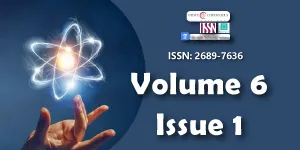The conclusion of the limitless hotel problem
Main Article Content
Abstract
Mathematician Cantor's Set theory appeared paradox and mathematical theory crisis. The famous German mathematician Hilbert used "Hilbert Hotel" to describe Cantor's Set theory paradox. At that time, people could not find a strict mathematical theory to refute Cantor's Set theory, but let everyone get used to and accept Cantor's Set theory, and thought that it was not a paradox. After the proposal of the limitless Hotel question, it caused controversy between the two parties.
I quoted the definition of mathematical logic and got the correct answer.
Proved that there is no paradox in limitless hotels (Reason: limitless hotels cannot increase the number of new guests staying.).
A deep analysis of Cantor's limitless elements and the infeasibility of one-to-one correspondence was conducted.
2020 Mathematics Subject Classification: 03G27, 03F07, 03D45, 03F55
Downloads
Article Details
Copyright (c) 2023 Xie L.

This work is licensed under a Creative Commons Attribution 4.0 International License.
Licensing and protecting the author rights is the central aim and core of the publishing business. Peertechz dedicates itself in making it easier for people to share and build upon the work of others while maintaining consistency with the rules of copyright. Peertechz licensing terms are formulated to facilitate reuse of the manuscripts published in journals to take maximum advantage of Open Access publication and for the purpose of disseminating knowledge.
We support 'libre' open access, which defines Open Access in true terms as free of charge online access along with usage rights. The usage rights are granted through the use of specific Creative Commons license.
Peertechz accomplice with- [CC BY 4.0]
Explanation
'CC' stands for Creative Commons license. 'BY' symbolizes that users have provided attribution to the creator that the published manuscripts can be used or shared. This license allows for redistribution, commercial and non-commercial, as long as it is passed along unchanged and in whole, with credit to the author.
Please take in notification that Creative Commons user licenses are non-revocable. We recommend authors to check if their funding body requires a specific license.
With this license, the authors are allowed that after publishing with Peertechz, they can share their research by posting a free draft copy of their article to any repository or website.
'CC BY' license observance:
|
License Name |
Permission to read and download |
Permission to display in a repository |
Permission to translate |
Commercial uses of manuscript |
|
CC BY 4.0 |
Yes |
Yes |
Yes |
Yes |
The authors please note that Creative Commons license is focused on making creative works available for discovery and reuse. Creative Commons licenses provide an alternative to standard copyrights, allowing authors to specify ways that their works can be used without having to grant permission for each individual request. Others who want to reserve all of their rights under copyright law should not use CC licenses.
Singh S. The never-ending story. Nature. 2005; 434:437–438.
Ellis GFR, Meissner KA, Nicolai H. The physics of infinity. Nature Physics. 2018; 14: 770-772.
Ling X. How to define the six standards. Annals of Mathematics and Physics. 2022; 5: 29. https://www.mathematicsgroup.us/articles/AMP-5-137.pdf
Carr HW. Tractatus Logico-Philosophicus. Nature. Books & Arts. 24 Feb 1923; 111: 246-247.
Whittaker ET. The Philosophy of Bertrand Russell. Nature. Books & Arts 03 Feb 1945; 155: 128-131.
Highton H. Perpetual motion machine. Research 09 Mar 1871. Nature. 3: 368-369.

